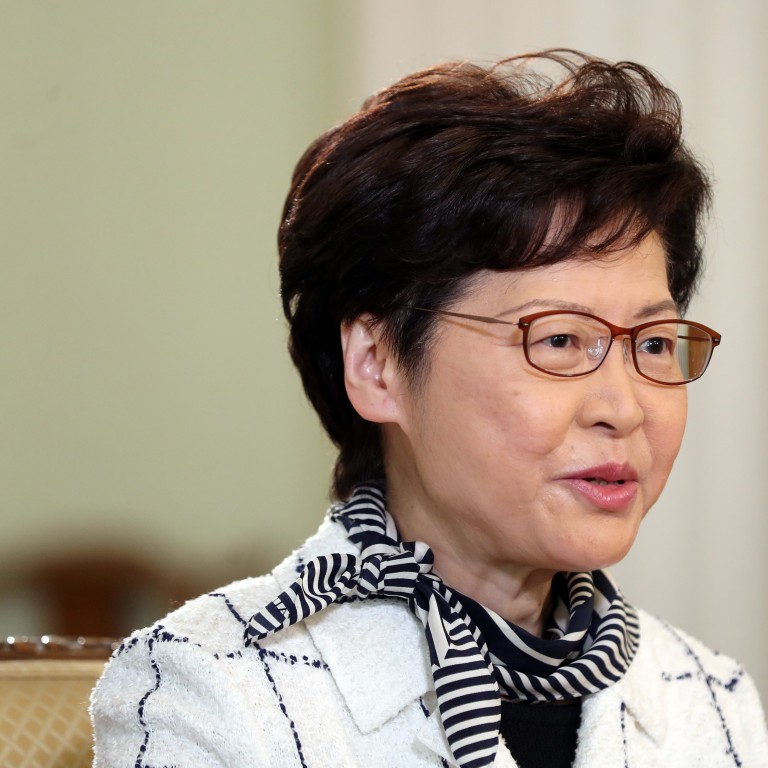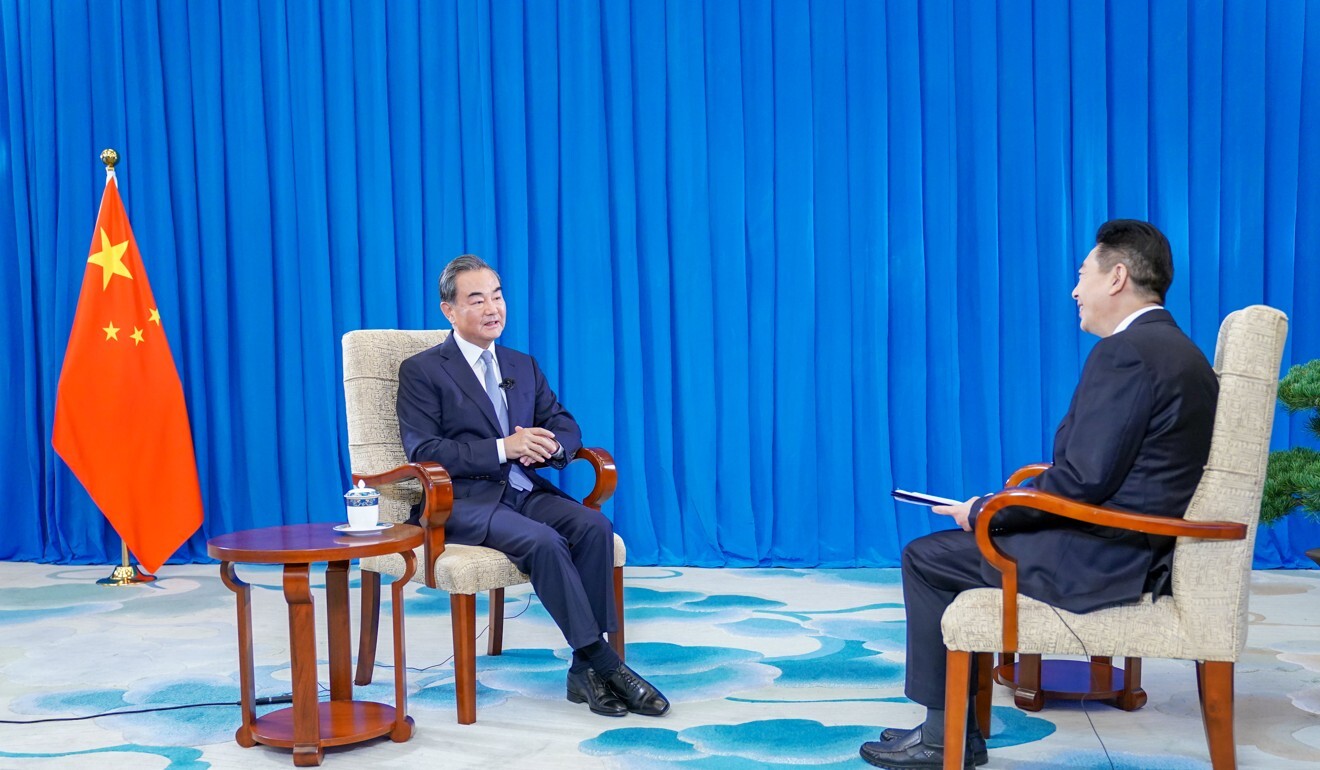
China urged to avoid retaliation over US sanctions on officials behind Hong Kong security law
- Government advisers say Beijing should expect to be targeted in the run up to the presidential election and should avoid a tit-for-tat response
- On Friday US Treasury released a list of officials, including Hong Kong Chief Executive Carrie Lam, who face economic penalties
Beijing should avoid a tit-for-tat response to US sanctions on Hong Kong and mainland Chinese officials over the city’s national security law, government advisers warned on Saturday.
They said China expected tough action in the run-up to the US presidential election and should be cautious about reacting to each step with counter measures.
“China could totally ignore the sanctions,” said Wang Huiyao, the director of Beijing-based think tank Centre for China and Globalisation and an adviser to the State Council, the country’s cabinet.
“Chinese officials are not like officials in the Middle East that have lots of assets overseas so the sanctions are mostly symbolic,” he said.
On Friday the US Treasury announced that it would impose economic sanctions on the officials it held responsible for Hong Kong’s sweeping new national security law and undermining the city’s freedoms.
Those targeted include Hong Kong’s Chief Executive Carrie Lam Cheng Yuet-ngor, the city’s secretaries of justice and security, its current and former police chiefs, and the officials in charge of Beijing’s Hong Kong policies, including Xia Baolong and Zhang Xiaoming, director and deputy director of the Hong Kong and Macau Affairs Office.
Under the sanctions, the US-based assets of those officials are blocked and Americans and businesses are generally prohibited from dealing with them.
Luo Huining, the head of the central government liaison office in Hong Kong, heaped scorn on the US government’s move to impose sanctions, mockingly offering to send across US$100 as “assets” for Trump to freeze.
‘Shameless and despicable’: Hong Kong decries US sanctions over security law
The liaison office issued a statement denouncing the sanctions as interference in China’s internal affairs but did not say whether China would take countermeasures.
The Hong Kong and Macau Affairs Office also issued a statement, saying the national security law only targeted a few people threatening national security and would help preserve the long-term prosperity of Hong Kong.
It also accused the US of trying to undermine Hong Kong’s stability and the “one country, two systems” framework, but said these efforts would be in vain and America would suffer the consequences of its actions.
Beijing last month responded to US sanctions on the officials responsible for its Xinjiang policies by announcing its own list of sanctions targeting a government official and three lawmakers.

Wang said such retaliation achieves little and only serves to turn public opinion in the US against China, adding that those targeted over their stance on Xinjiang “had never visited China anyway and things will stay the same for them”.
“If China reacts with another big move then it will drive US voters in favour of Trump, so the best strategy is to ignore it,” Wang continued.
He also noted that senior figures have started to adopt a more conciliatory tone towards the US in recent weeks.
In an article published on Friday, Yang Jiechi, the Communist Party’s senior foreign policy official, urged the US to cooperate more closely over issues such as trade, defence, global warming and North Korea.
US sanctions Hong Kong leader Carrie Lam for ‘policies of suppression’
Earlier in the week, Foreign Minister Wang Yi told state news agency Xinhua that although China had responded to the closure of its consulate in Houston by closing the US consulate in Chengdu, it was not interested in a diplomatic war.
Shi Yinhong, a US specialist at Beijing’s Renmin University, said there was no ideal response to Friday’s sanctions.
“The only real retaliation is to move against US companies in China, but that would work against China’s efforts to attract foreign business – especially US business,” he said.
Chinese users wait to see what impact Trump WeChat ban will have
“Or China could choose not to retaliate in this specific case. I think by doing so China could avoid causing further damage to its own interests.”
Avoiding a tit-for-tat retaliation would also give Beijing more leeway when dealing with the next US administration, added Shi, who is also an adviser to the State Council.
He said that if Donald Trump lost to Joe Biden in November, he might take steps that further damage relations, making it more difficult for Biden to repair them.
“An asymmetric approach could give China more space and leave a window to talk business with the next president,” Shi continued.

